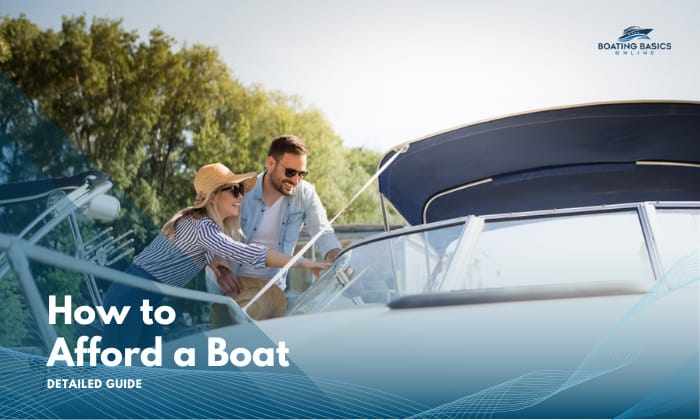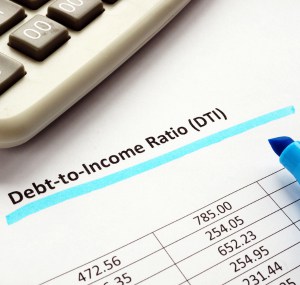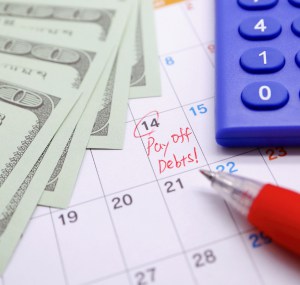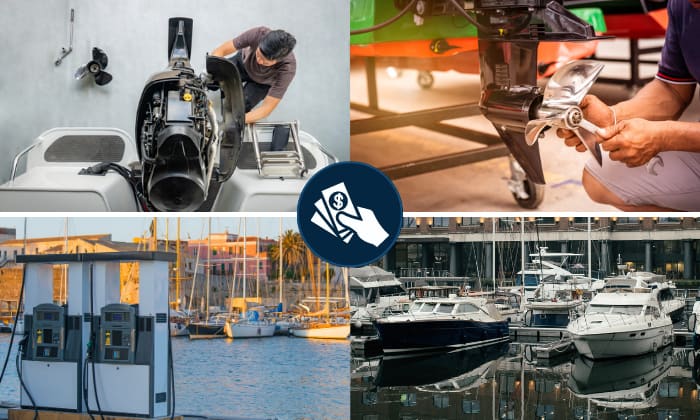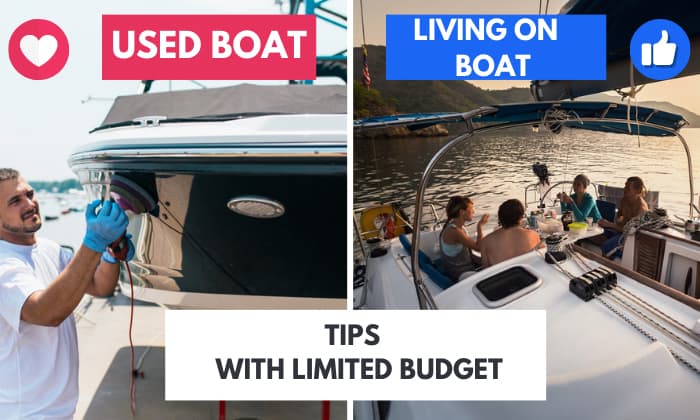Whether you’ve been thinking of buying your own vessel or are just curious about how to afford a boat, this guide’s got your back. It will help you know the correct approach to buying a boat. This means assessing your finances, all associated costs and running expenses, insurance, and other important considerations.
This way, you’ll be able to work within your budget and avoid hiccups down the road.
Table of Contents
How to Afford a Boat: All the Steps and Concerns
So, how do people afford boats exactly? On the whole, they take any of these three routes:
- Paying solely with cash
- Financing through a loan
- Combining cash and financing
More or less, the steps I’ve shared here apply to most of these routes, except for a few ones that pertain to a particular one. At best, there’s no step-by-step method to buy a boat, given the flexibility of your options.
1. Understand the financial commitment you’ll have to make.
Owners often joke about the acronym BOAT, which they say really means “Bust Out Another Thousand.” They only ever laugh to a certain point, though, as there’s definitely a touch of (painful) truth in that witticism.
All your associated costs go beyond the boat’s purchase price. You’ll also have to pay for:
- Insurance
- Registration (and renewal)
- Fuel
- Equipment
- Maintenance and repairs
- Winterization (if needed in your area)
- Upgrades
- Storage costs
- Docking costs
With gear expenses alone, you’ll have to allot a significant portion of your budget. After all, you’ll need life jackets, ropes, throw cushions, skis and boards (if you’re into watersports), fishing gear (if you’re into that), cleaning supplies, bumpers, cleats, and so on.
What more if we consider that each item will depreciate and have to be repaired or replaced over time? Ultimately, your boat will lose its value, so you can bid adieu to those hopes that you’re actually buying an asset/investment.
That is what we really mean when we talk about the cost of owning a boat. And you should know for certain that you’ll be able to bear all that financial responsibility before you decide to pay outright with cold, hard cash or take out a boat loan.
2. Research your options.
Obviously, you should not purchase a boat you can’t afford. And that includes the running costs over time. Take the time to explore different types of boats and their various price ranges.
Platforms like Boat Trader make this easy as their site comes with price sliders. You can sort the results based on the type of boat, along with their specs and features.
When answering the question, “How much should I spend on a boat?”, your prospective vessel should always be one that’s within your budget while making sure that it fits most, if not all, of your needs and requirements.
Other online platforms you can check are:
- Boats.com
- iBoats.com
- Facebook Marketplace
- Yachtworld.com
3. Consider paying with cash.
If you pay in full cash, two of the best advantages you enjoy are that it ensures no debts and a lower overall cost.
The fact that it’s common advice not to take out a boat loan if you have other debts to pay only makes this option more attractive. This rings especially true if you’ve saved enough and have already calculated your entire annual expenses going forward.
Of course, those expenses should include all the running costs mentioned above.
However, the biggest downside of buying a boat with hard cash is that you’ll be losing out on its time value.
4. Financing should never be out of the equation.
You should finance a boat, preferably if you’ve already paid off all your major debts. This will only do your DTI (debt-to-income ratio) and overall creditworthiness a load of good. However, this ultimately is based on income, from both your salary and any other sources of revenue you may have.
My general rules of thumb and what I consider when deciding whether to opt for financing are as follows:
- It’s often a bad financial decision to pay interest on a depreciating asset like a boat.
- Most boat loans are short-term.
- Consider 5% to 10% of any brand-new boat’s price as what you’ll have to pay yearly. At Truist Bank, for example, I was able to get a 5% interest rate. I suggest widening your options as much as possible.
- If you have the ability and you think the timing is right, pay off the loan to avoid financing the vessel for a needlessly long time.
The final point is where the fifth step comes in.
5. Mix financing with cash.
You can always reduce the amount you need to finance if you have extra cash on hand. Consider using that to pay for start-up costs like gear, registration, and other initial expenses your boat will need.
What’s left will then serve as a down payment for the boat. Even a $10,000 down payment for a $50,000 boat can make a huge difference in lowering your monthly payments, getting better loan terms, and reducing your interest costs.
I suggest you read on, particularly the section “Tips for Affording a Boat on a Limited Budget” as that serves as an extension of the methods you can follow to purchase a watercraft.
Tips to Calculate How Much Boat You Can Afford
The important question you should askes yourself is, how much boat can I afford? Indeed, you have to pay attention to your credit score, calculate your DTI, and pinpoint your exact budget from there.
1. Check your credit score
You can request a credit report by following the instructions on this site: https://www.usa.gov/credit-reports
What’s important is to have as high a score as possible as it’s directly related to your loan approval chances and getting better interest rates. A minimum of at least 690 is recommended.
2. Calculate DTI
The next step is calculating your debt-to-income ratio by dividing your monthly debt by your total monthly income. Take note that most lenders only approve if you have a score of 50% or lower.
Consider this example. Let’s say you have the following debt payments at present:
- Monthly mortgage payment: $1,500
- Car loan: $200
- Credit card costs: $100 (at the minimum)
- Other debts: $150
Now, grab a calculator and add all those values up: $1,500+$200+$100+$150 = $1950
Assuming your gross salary is $5,000, and you have a rental property that pays you $1,000 a month. That leaves you with a total of $6,000.
$1950/$6000 is 32.5%, so that means your loan request will likely be approved, as the DTI score is lower than 50%.
3. Determine your budget
From there, discuss how much you can borrow with all prospective lenders. Remember the 5% to 10% range above when choosing the monthly payments you’ll end up with.
All the Ongoing Costs to Consider When Purchasing a Boat
Most boaters say running costs are 10% of the boat’s value. Consider that as just a minimum, though, and remember these points:
- Maintenance costs tend to be exponential and directly proportional to boat size.
- You will inevitably have to perform upgrades on your boat.
- Fuel costs are never static.
- Costs for docking and moorage vary based on locale and type.
Tips for Affording a Boat on a Limited Budget
It’s entirely possible to afford a yacht if you don’t close yourself off from other viable avenues. Try out these tips:
- Buy an older, used boat and do your own maintenance.
This should be fairly straightforward. There are solid boats out there that you can buy for less than $10,000.
There’s really no trick to it. I know plenty of buddies who purchase these boats, give them a makeover, do essential repairs, then maintain them over time.
Repairs usually mean replacing starters and trailer bearings, fixing broken gauges and impellers, and rewiring equipment. You can do all these yourself by taking the time to learn online, especially through YouTube videos.
Labor costs are through the roof right now, so you can only imagine the money you can save going DIY.
- Purchase a boat with the intent of making it your permanent residence
If you don’t mind living on a boat, then don’t hesitate to do this. You can always start small. The logic behind this is you’re paying for mortgage or rent already, so why not just allot that money to paying for a boat instead – assuming the vessel already has all the amenities you need?
Related:
Frequently Asked Questions
Can I afford a boat even if I have a limited budget?
Yes, if you set realistic budget goals, consider all your options, make the right calculations, and are willing to exert effort to maintain the boat to save on labor costs. You can enjoy huge cuts to your average boat payment by combining most of the tips shared here.
Spend cash or get a loan on a boat: which is better?
There’s no “better” route, as each one has its pros and cons, which have been reiterated above. To jog your memory, spending cash has the advantage of a lower overall cost, although you’ll lose its time value. In contrast, getting a loan (and paying it on time) can improve your creditworthiness; however, you must have a low DTI score.
It may be better to combine the two based on your circumstances.
Conclusion
On the whole, it’s not really a question of “How to afford a boat?”, especially if you’re asking it thinking that it’s close to impossible to own one yourself. Rather, it’s about your willingness to find out and explore every avenue available to you.
This takes careful consideration of your current financial standing, choosing the best way to pay for the boat, and relying on proven workarounds.

“My intention from the first day establishing Boating Basics Online is to provide as much help as possible for boaters who want to experience a first safe and convenient trip. So feel free to join us and share your beautiful journeys to the sea!”

